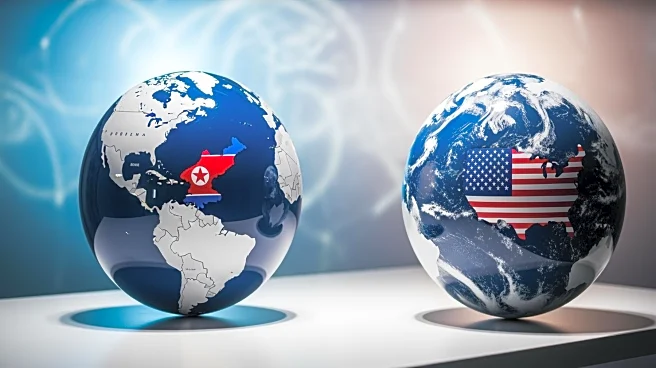What's Happening?
North Korean leader Kim Jong Un has expressed willingness to meet with President Trump, according to reports from South Korean intelligence. This development follows a series of interactions between the two leaders during Trump's first term, aimed at
persuading North Korea to roll back its nuclear weapons program. Despite previous meetings, North Korea's nuclear arsenal remains a central source of tension, with the country formally enshrining its nuclear capability in its constitution. The news of potential dialogue comes amid subtle changes in North Korea's rhetoric and policy analysis of U.S. administration tendencies.
Why It's Important?
A meeting between Kim Jong Un and President Trump could have significant implications for international relations and nuclear diplomacy. North Korea's nuclear capabilities pose a threat to regional stability, and dialogue could lead to de-escalation or further negotiations. The willingness to engage with Trump suggests a potential shift in North Korea's approach to U.S. relations, which could impact diplomatic strategies and security policies in the region.
What's Next?
While President Trump has expressed openness to meeting Kim Jong Un, the timing and conditions of such a meeting remain uncertain. The potential for dialogue could lead to negotiations on nuclear disarmament or other diplomatic agreements. Stakeholders, including South Korea and Japan, may react to these developments with strategic adjustments in their foreign policies.
Beyond the Headlines
The prospect of renewed dialogue between North Korea and the U.S. highlights the complexities of nuclear diplomacy and the challenges of achieving lasting peace and security in the region. The interactions between Trump and Kim Jong Un could influence broader geopolitical dynamics and the role of international organizations in mediating conflicts.















